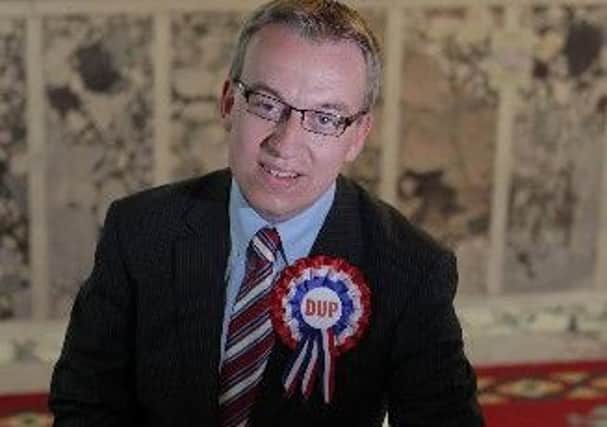UUP and DUP offer visions for a Protestant-minority NI


The picture showed that Catholics now make up virtually as high a proportion as they did back then, whilst there has never been a lower proportion of Protestants than now.
In addition, looking at census data for the religious backgrounds of young children reveals that this is accelerating rapidly.
Advertisement
Hide AdAdvertisement
Hide AdTherefore, both the main unionist parties were asked what their strategies were for dealing with the inevitable demographic change, and what they believe it spells for the Union.
In a statement in the name of MLA Christopher Stalford, the DUP said: “When these figures were first published nearly five years ago they were predictably leapt upon by those who are happy to infer someone’s political affiliation from their religious background.”
He described such thinking as “lazy sectarianism”; though, as Northern Ireland’s political make-up shows, it largely holds true.
The statement pointed to the fact that as well as asking for religion, the last census also asked people about national identity for the first time.
Advertisement
Hide AdAdvertisement
Hide AdThese results show 48.4% of people had a British national identity, 28.3% Irish, and 29.4% Northern Irish (the reason these percentages add up to over 100% is because people could select multiple categories when describing their national identity).
Even among those aged 15-and-under, 45.1% had a British identity, 31.4% Irish, and 30.5% Northern Irish.
The DUP statement added: “There is a sizable and growing number of people who are proud of their Northern Ireland identity and they come from all religious backgrounds and none.
“Studies have repeatedly shown there are a large number of people from a Catholic background who are either ambivalent to any constitutional change or who would actively vote to remain within the UK. There is a challenge for all unionist parties however to translate this level of support into support for unionist parties.”
Advertisement
Hide AdAdvertisement
Hide AdThe UUP meanwhile said: “The changing demographics of Northern Ireland have been clear for many years, with the balance of Protestants and Catholics becoming more equal and an increasing number of people choosing to not associate themselves with any particular denomination.
“In terms of the political ramifications; we have always argued that the union is the best option for all our community in Northern Ireland- irrespective of religious background.
“Unionism must be wider than Protestantism.
“The UUP will continue to argue for the social, economic and cultural benefits of Northern Ireland remaining part of the UK.
“These benefits apply equally to all, irrespective of religion.”